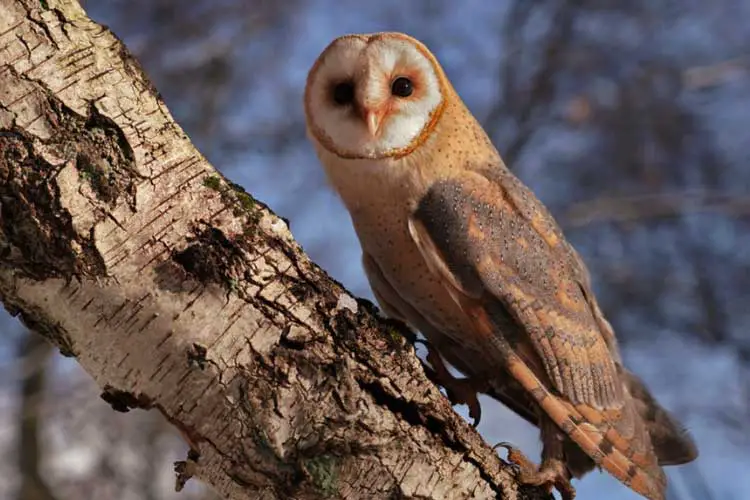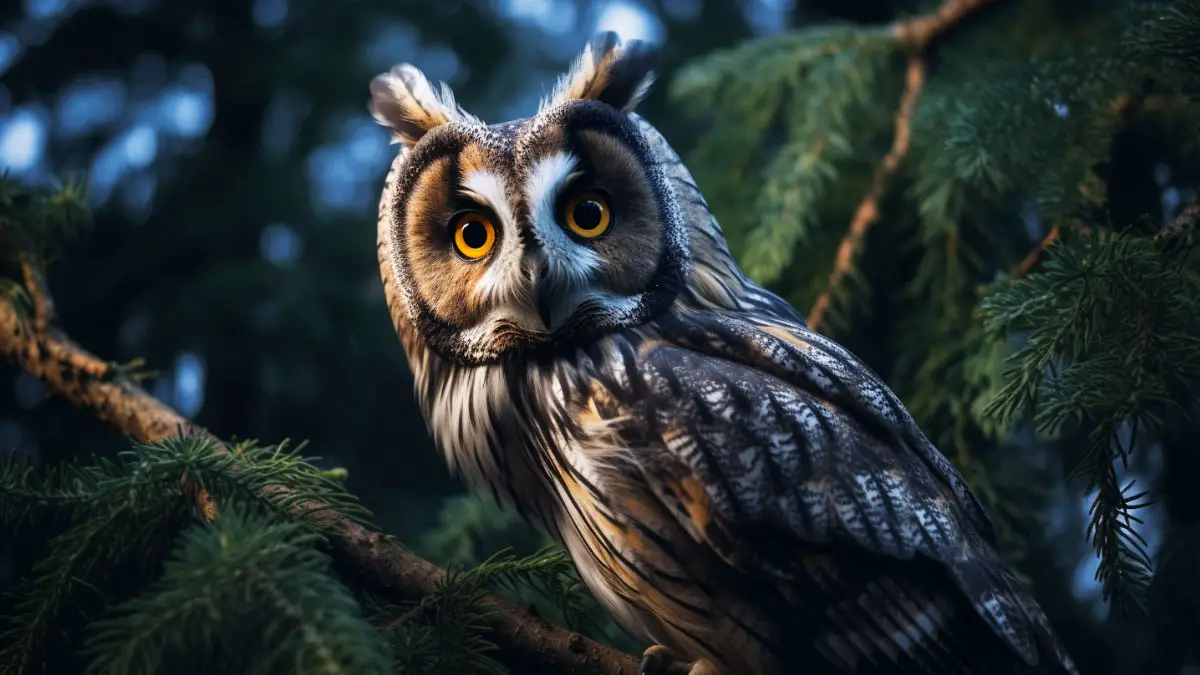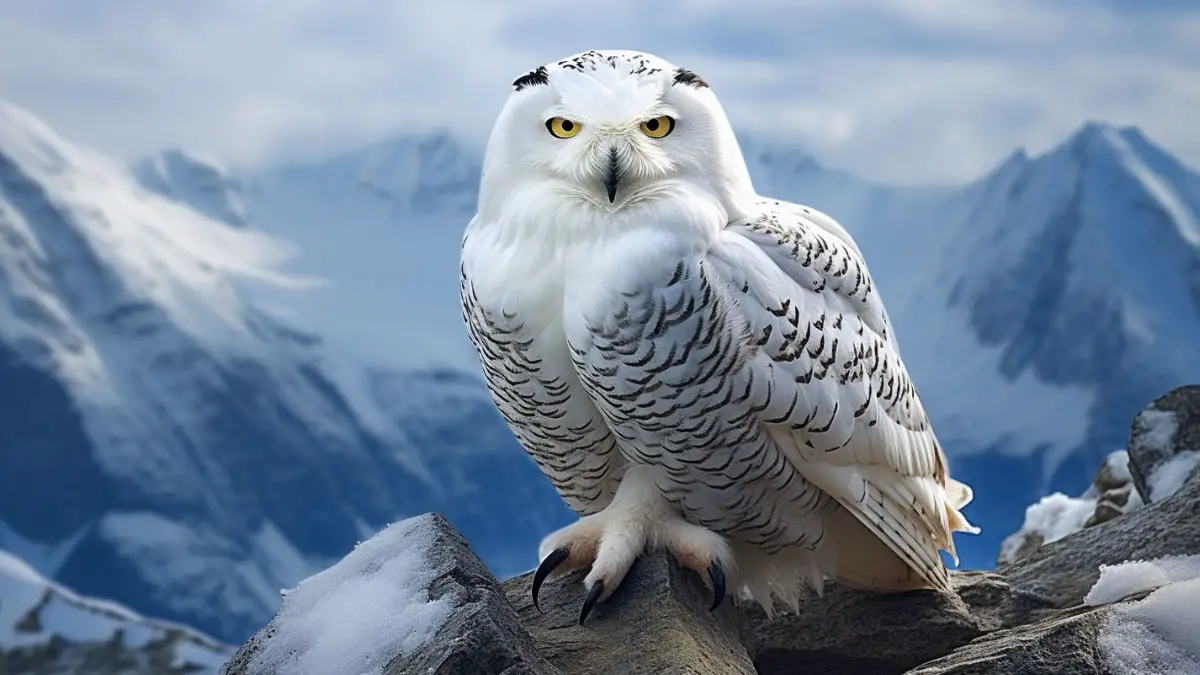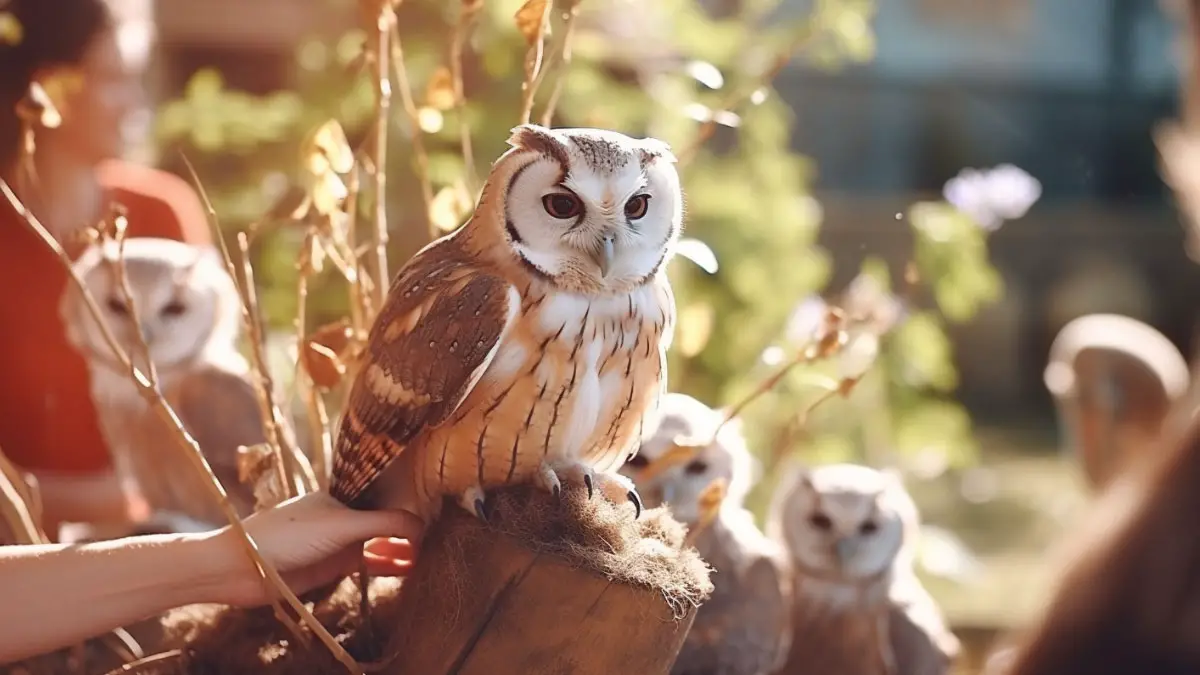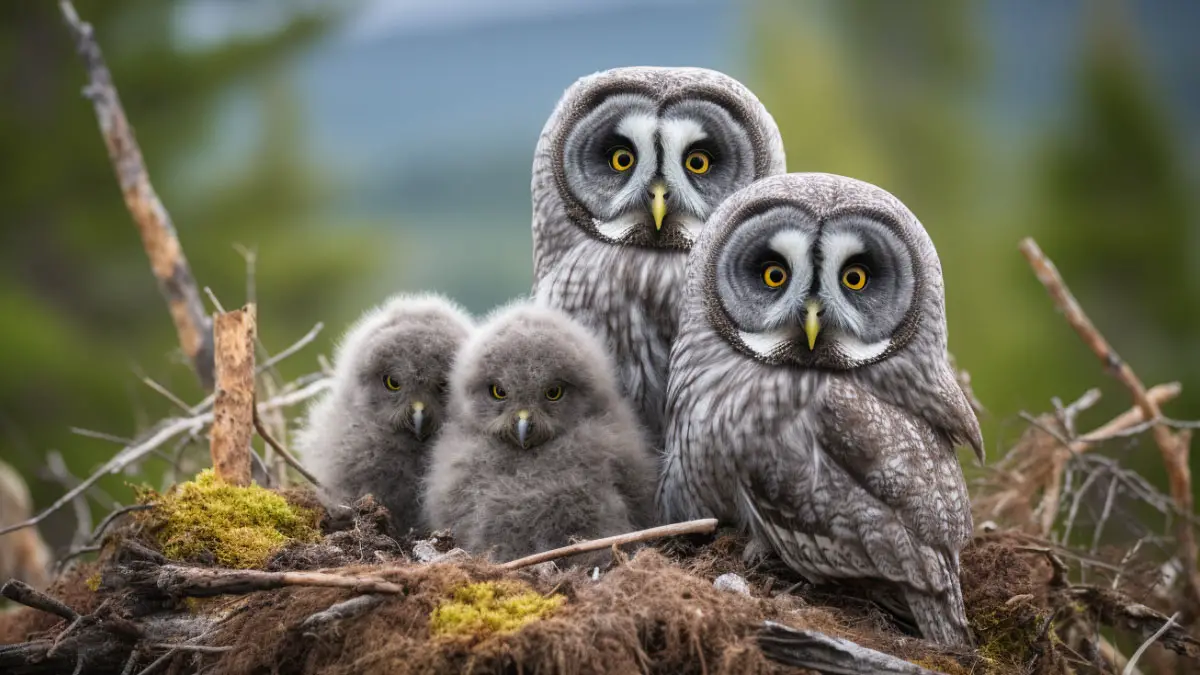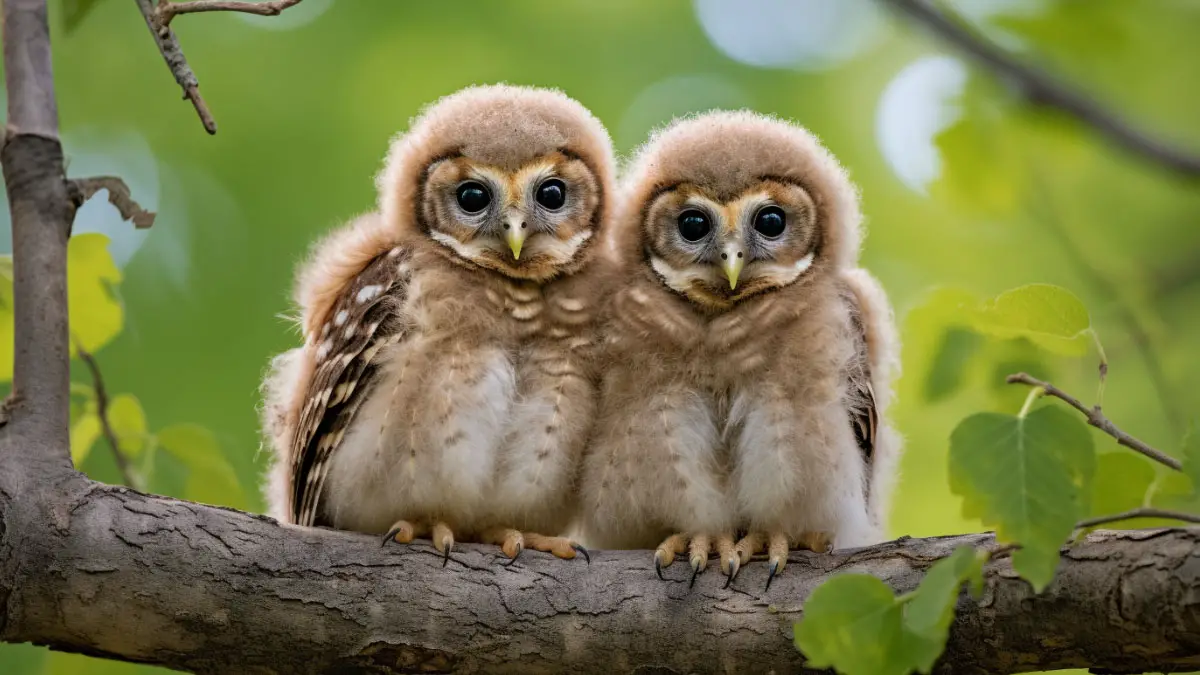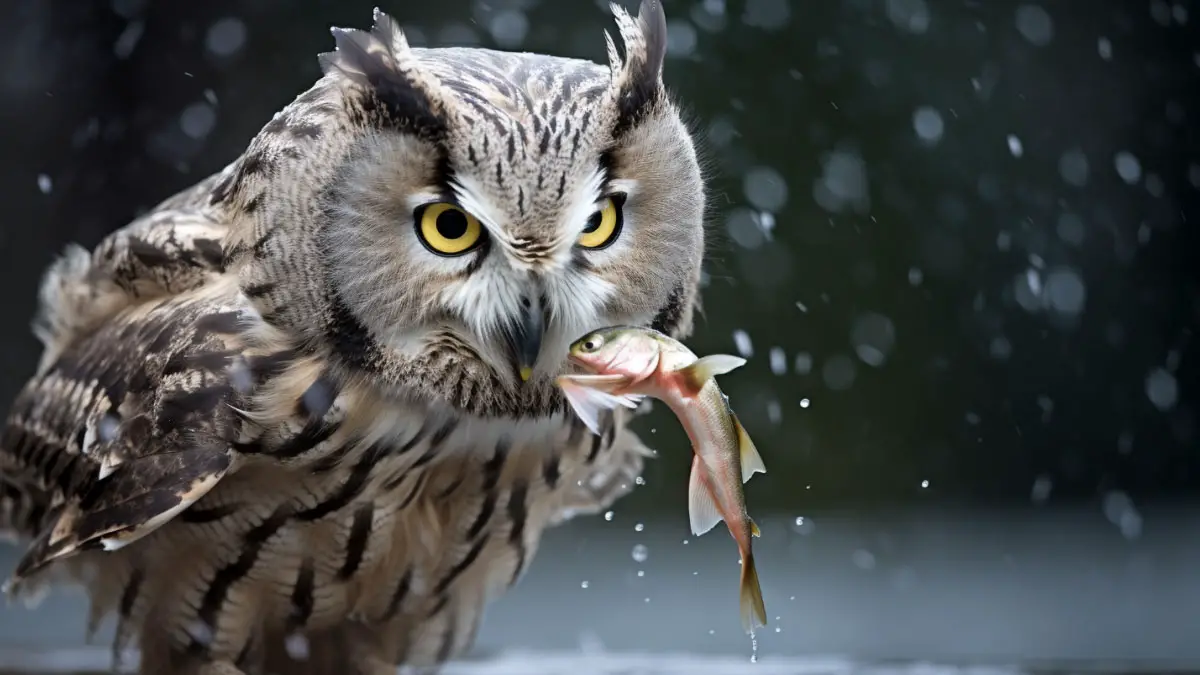Blinking eyes is a common activity of all creatures. Like all other creatures, or humans, owls bink their eyes too.
So, Do owl eyes blink? What does it mean? Owls do not blink their eyes in the same way that humans and other animals do. Rather than closing their eyes with a single, smooth motion, owls have a series of small, quick blinks that only partially close their eyes.
It is understandable why people ask this question. So the answer is yes owls’ eyes do blink too but these blinks are often so fast that they are barely noticeable. We will go thorough an in-depth discussion about this matter in this article.
Owls Blinking: What Does It mean?
Owls blink their eyes to keep them moist and clean; just like humans. To see well and avoid discomfort, owls must keep their eyes moisturized. Due to their wide eyes and thin eyelids, owls must blink more frequently to keep their eyes adequately lubricated.
However, as owl eyes are adapted for hunting and spotting prey at night, constant blinking could interfere with their vision. As a result, owls do not blink as frequently as other animals or birds blinking. Nevertheless, they must blink to keep their eyes moist and clean.
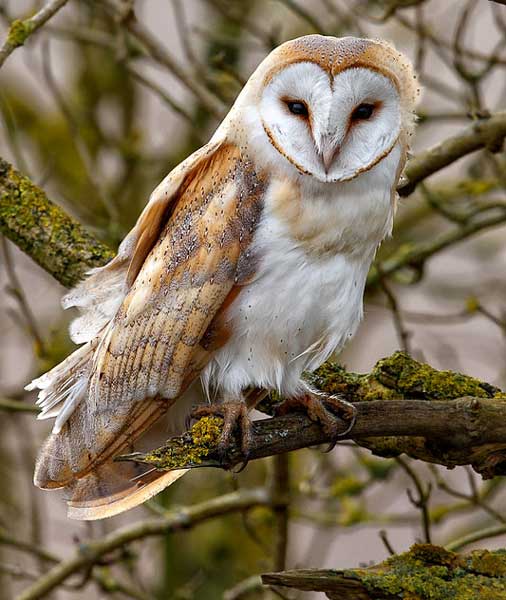
Baby owls also blink their eyes to keep them moist and clean. However, baby owls may not blink as frequently as adult owls. That is because they are still developing their hunting skills and do not need to be as vigilant as adults.
But baby owls’ eyes need to be lubricated and clean to maintain clear vision and support their development.
Owls Blinking: Do Owls Blink Often?
The answer to this question is emphatically no. Owls do not blink their eyes like humans do. This is due to a number of factors. We will now go into the reasons in depth.
Owls have a distinct technique of blinking their eyes that distinguishes them from other animals. In contrast to humans and other animals, owls close their eyes in a series of brief, fast blinks that only half close their eyelids. These blinks are frequently so quick that they are scarcely discernible.
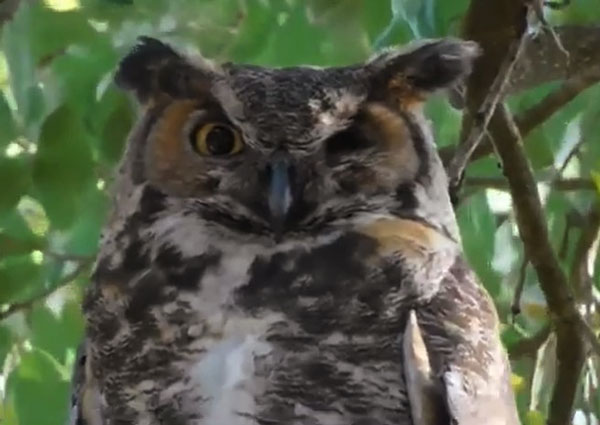
One explanation for this is that owls’ eyes are so huge and their eyelids are so thin. Owls must blink more often than other animals to keep their eyes lubricated and avoid discomfort. This helps to keep their eyes moist and clean, which is essential for excellent vision.
However, owls also need to be able to spot prey at night, so they cannot afford to blink too often. As a result, owls do not blink as frequently as other animals, but they do still need to blink to keep their eyes moist and clean.
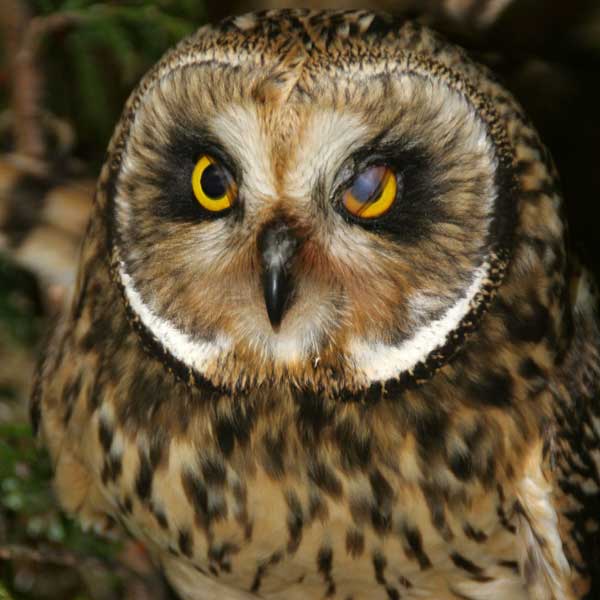
Overall, while owls may not blink as frequently as other animals, owls still need to blink in order to keep their eyes moist and clean. Thus, their ability to blink one eye at a time allows them to maintain a constant watch on their surroundings.
Do Owls Blink While They are Sleeping?
While an owl sleeps, owls do not blink in the same manner that humans and other animals do. Instead, owls will close their eyes entirely and sleep in torpor, which is equivalent to a profound slumber. The heart rate, breathing, and other bodily functions slow down significantly during an owl sleeping.
While in a state of torpor, owls do not need to blink their eyes to keep them moist and clean, as their eyes are closed and not exposed to the air. However, owls may still blink their eyes occasionally even while in sleep. That is because it helps to keep their eyes lubricated and prevent irritation.
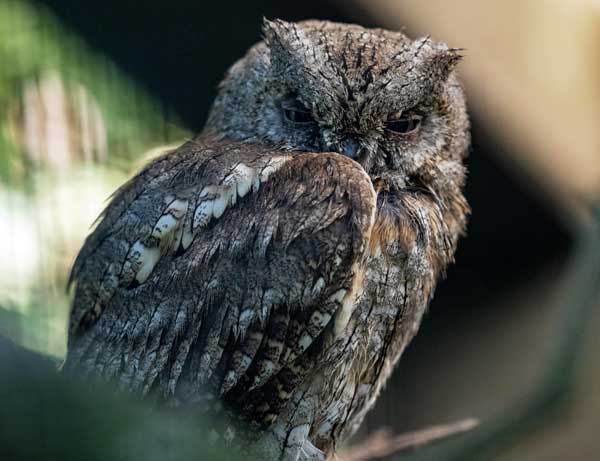
On the other hand, it’s also worth mentioning that owls don’t sleep the way humans do. Instead of resting for long periods, owls will take brief naps throughout the day and night.
They do it frequently when perched on a limb or other vantage point. This keeps them attentive and ready to respond to any potential dangers or prey chances.
Do Owls Blink One Eye At A Time?
Yes, owls are able to blink only one eye at once. This enables them to keep an eye on their surroundings continuously, even when blinking. An owl may keep an eye on its prey or check for danger when it blinks one eye while leaving the other open.
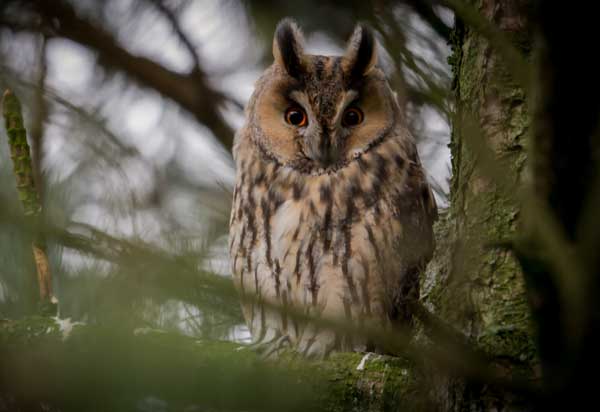
One eye blinking at a time is a crucial adaptation for owls because it keeps their eyesight sharp and keeps them awake when they hunt at night.
The ability to blink one eye at a time enables owls to keep a continual check on their surroundings without losing concentration. Owls rely on their sharp eyesight to identify and capture prey.
Owls Blinking: Some Interesting Information
So far, we have gained a lot of knowledge about owls’ blinking. Except for all those mentioned things, you should know some other interesting and lesser-known facts.
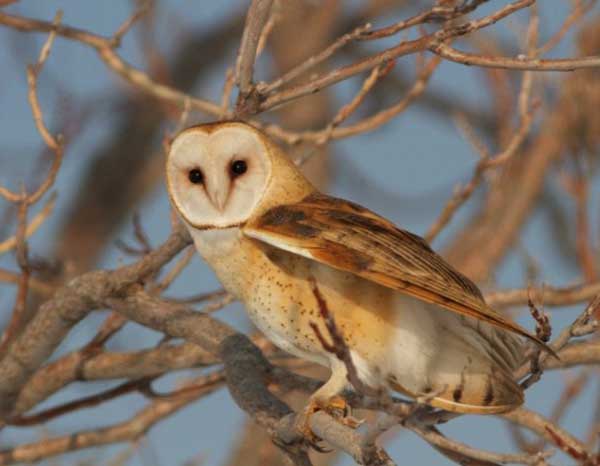
Owls can Rotate Head 360 Degrees
In addition to blinking one eye at a time, owls also can rotate their heads nearly 360 degrees. This allows them to scan their surroundings for potential threats or prey opportunities without having to move their bodies.
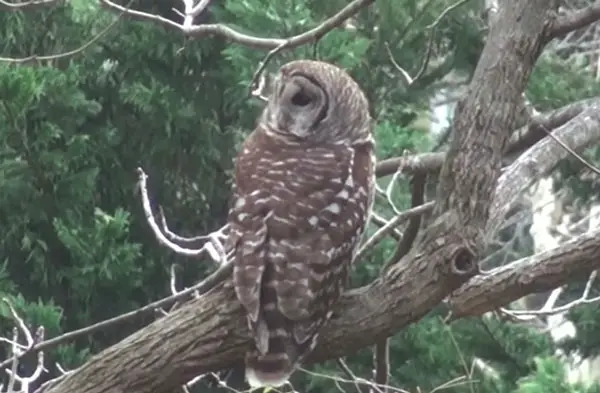
Together, the ability to blink one eye at a time and rotate their heads gives owls exceptional situational awareness and makes them highly efficient hunters.
Not All owls Blink the Same Way
Another interesting feature that keeps owls an outstanding creature amongst wild animals is that not all owls blink in the same way. Different species of owls have slightly different ways of blinking their eyes.
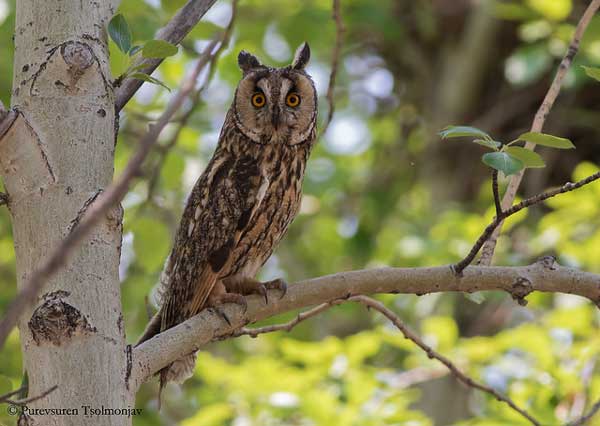
For example, barn owls have a series of rapid, partial blinks that help to keep their eyes moist and clean. On the other hand, some species of owls, such as the great horned owl, have been observed to blink their eyes less frequently. That is because they have thicker eyelids and more efficient tear production.
FAQs
In this section, we will try to answer some of the frequently asked questions shortly.
Some people believe it. Although there is no scientific explanation for it.
Owls have enhanced depth perception and can view objects with both eyes open at the same time in all three dimensions: height, breadth, and depth.
Owls need to blink more frequently than other animals as this helps to keep their eyes moist and clean, which is important for maintaining clear vision.
Conclusion
Overall, the unique way that owls blink their eyes is just one of the many interesting adaptations that make them such skilled predators.
Their ability to blink one eye at a time and rotate their heads gives them exceptional situational awareness. And also helps them to maintain clear vision and stay alert while hunting at night. So the next time you meet an owl, stop to notice how its eyes flicker distinctively and intriguingly.
